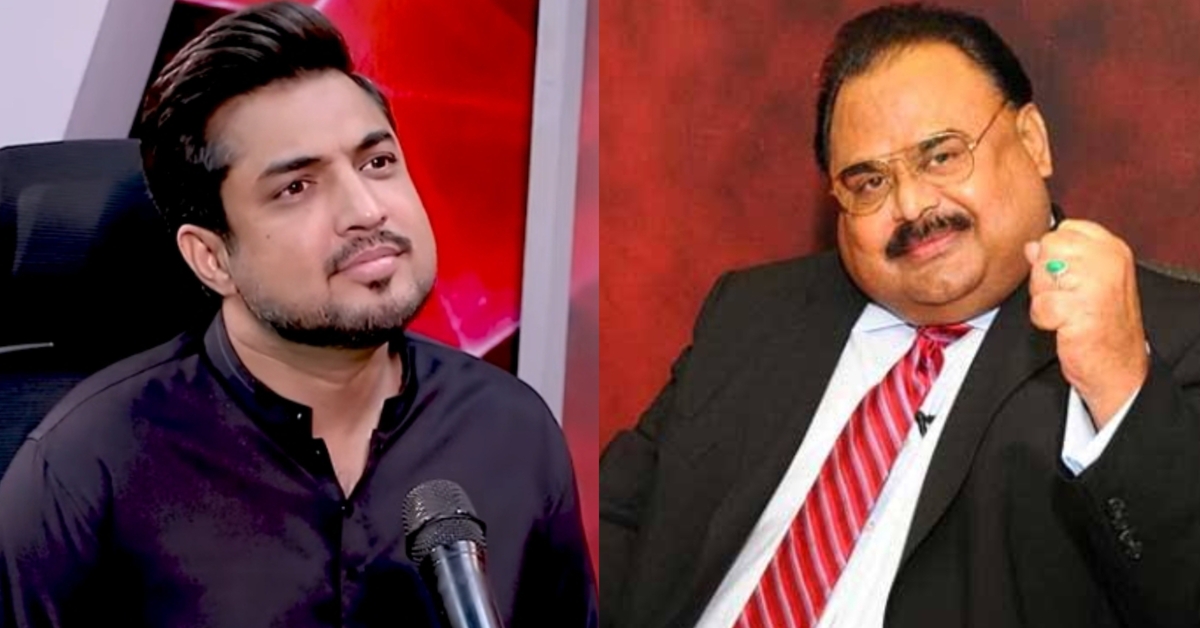Iqrar ul Hassan, a celebrated Pakistani journalist and television host, has long been a prominent figure in the country’s media landscape. Known for his bold investigative reporting and his popular television show Sar-e-Aam, Iqrar has built a reputation for exposing corruption and social injustices. However, his name often finds its way into headlines not just for his journalism but also for his controversial personal life and his outspoken pro-establishment views. Recently, Iqrar has once again sparked public debate by announcing his intention to form a political party — a move that has left many wondering whether he might follow in the footsteps of another famous figure, Altaf Hussain.
Iqrar ul Hassan’s Political Ambitions
In a recent interview with Urdu Point, Iqrar ul Hassan revealed his plan to establish a new political platform aimed at empowering the common man. While the announcement caught many by surprise, Iqrar clarified that he does not consider this initiative as the formation of a conventional political party. Instead, he envisions a platform where journalists, intellectuals, and educated citizens can play a vital role in shaping public opinion and promoting political awareness among the masses.
Iqrar stated, “I would disagree that I am forming a political party. In fact, journalists, educated people, and others have a responsibility to enhance the thought process of the local population. I feel that Pakistan needs another political platform at this moment — one that we haven’t been able to create in the past 78 years.” His remarks suggest a desire to build a new kind of political movement — one not driven by personality cults or family dynasties, but by collective participation and meritocracy.
Drawing Parallels with Altaf Hussain and MQM
Many observers have drawn comparisons between Iqrar’s emerging political vision and the rise of Altaf Hussain’s Muttahida Qaumi Movement (MQM). Like Altaf Hussain, Iqrar appears to advocate for middle-class representation and grassroots empowerment. However, Iqrar has been quick to point out the key difference between his approach and that of MQM. While MQM gave leadership positions to individuals recommended by others, Iqrar claims his platform will provide “genuine chances for common people to contest elections and come forward through a pure process.”
This distinction is crucial, as it indicates that Iqrar does not wish to replicate MQM’s structure but instead to evolve beyond it — focusing on transparency and genuine public representation. His decision not to contest elections himself further supports his claim that he seeks to create a truly democratic movement rather than a personality-driven party.
Public Reaction and Potential Challenges
Iqrar’s announcement has been met with mixed reactions. Supporters view his decision as a refreshing development in Pakistan’s political arena, where traditional parties have long been accused of elitism and corruption. On the other hand, critics argue that journalists turning to politics often compromise their neutrality and credibility. Some also question whether Iqrar’s media popularity will be sufficient to translate into real political influence.
If his vision materializes, Iqrar ul Hassan could potentially introduce a new model of citizen-led governance in Pakistan. However, he faces formidable challenges — from establishing organizational credibility to navigating the complexities of Pakistan’s political system.
